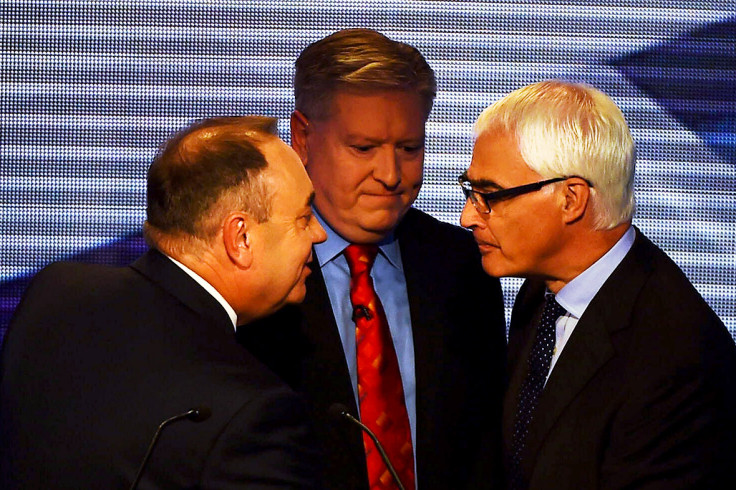Scottish Independence: The SNP and Labour Appeal to the Stereotypical Scots Miser

The tone and conduct of the "debate" preceding the referendum on Scottish Independence has up till now been a source of shame and disgrace for the Scottish political class, which appears to believe in the old stereotype of Scots being tight-fisted misers.
Both the Scottish National Party (SNP) and the Scottish Labour Party have adopted the strategy of telling people that by voting a certain way they will be protecting or increasing their income in an apparent attempt to woo the Scrooge McDuck vote.
Alex Salmond for example has pledged that an independent Scotland would dispense with the so-called "bedroom tax" and ensure that the minimum wage will keep pace with inflation. Meanwhile the Better Together campaign has claimed, citing a report from Citigroup, that voting for independence will add £875 per year to the energy bills of Scots.
Despite the constant "independence will cost/benefit Scots by so much per year" of both sides (of which the above is just a minor sample), just last week Labour MP Douglas Alexander was complaining that the debate had been far too emotional and that really important issues like pensions and funding for schools and hospitals had been ignored.
Important as they may be all of this talk about money misses two key points.
The first is that neither side knows for sure how an independent Scotland would fare economically. The second is that even if they did the real question should indeed be one about emotion and identity.
No doubt Scotland's economy would be affected to some degree by going independent. But the predictions of deadly doom and unmatched prosperity put about by the two sides are the least likely scenarios. Despite what the SNP and Scottish Labour pretend, the economy of a future independent Scotland is, as Donald Rumsfeld would say, "a known unknown".
That being the case the only question that remains and really matters is one of national identity. That is the emotional argument that was so distressing Douglas Alexander. The real question is what do Scots mean when they use the word "we".
In the 300 years of union a Scot and an Englishman helped launch the Industrial Revolution with their development of the steam engine, English and Scottish soldiers fought and died together to defeat Napoleon (and other threats since), English politicians have been inspired by Scottish philosophers and free healthcare in Scotland was introduced by a Welshman.
If this and so much more means nothing to the voters of Scotland they are of course welcome to vote "Yes" to independence. But one would hope that pride in the achievements of their country and the feeling of belonging to a people would trump the empty promise or threat of £10 a week more or less. Again the only question that then matters is what comes to mind when people think of "their country" and "their people". Scotland? Britain? Scotland and Britain?
One final point about the shabbiness of the debate so far has been the sense of entitlement on the part of the SNP and Alex Salmond. True enough Scottish Labour took the people of Scotland (and their votes) for granted for so long that they allowed the SNP to supplant them in much of the country. But it appears that the SNP are starting to fall into the same trap.
Whenever Alex Salmond talks about an independent Scotland he seems to assume that it will be run, in perpetuity, by himself and the SNP. Mr Salmond can talk all he wants about scrapping the "bedroom tax", protecting the welfare state and removing nuclear weapons from Scotland but who's to say that 10, 20 or 50 years in the future an independent Scotland would not elect a government that would undo all these changes?
Mr Salmond may wish that Scotland became an effective one-party state on the model of post-Apartheid South Africa, with himself as Nelson Mandela, but he cannot guarantee that. Not unless the frequent viciousness of the "cybernats" (a kind of online version of the Brownshirts) and their obsession with "traitors" is translated into the real world. Despite the poor quality of the debate it surely couldn't get that bad could it?
© Copyright IBTimes 2025. All rights reserved.





















